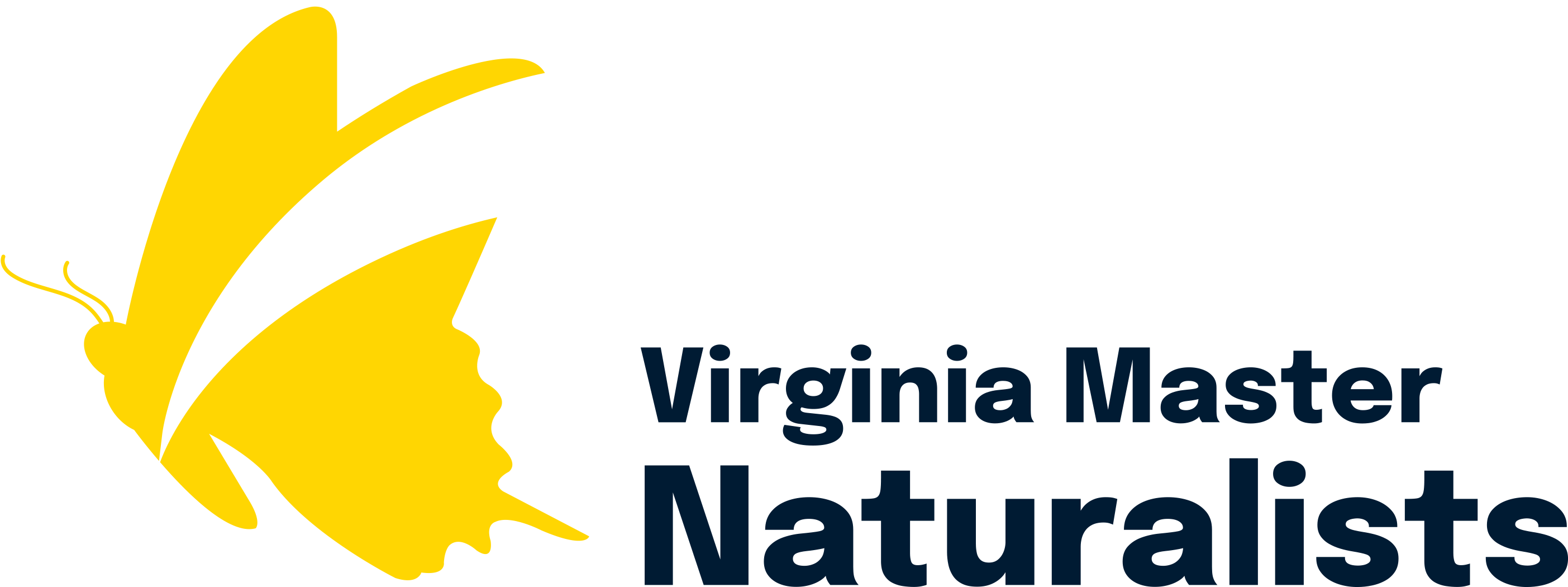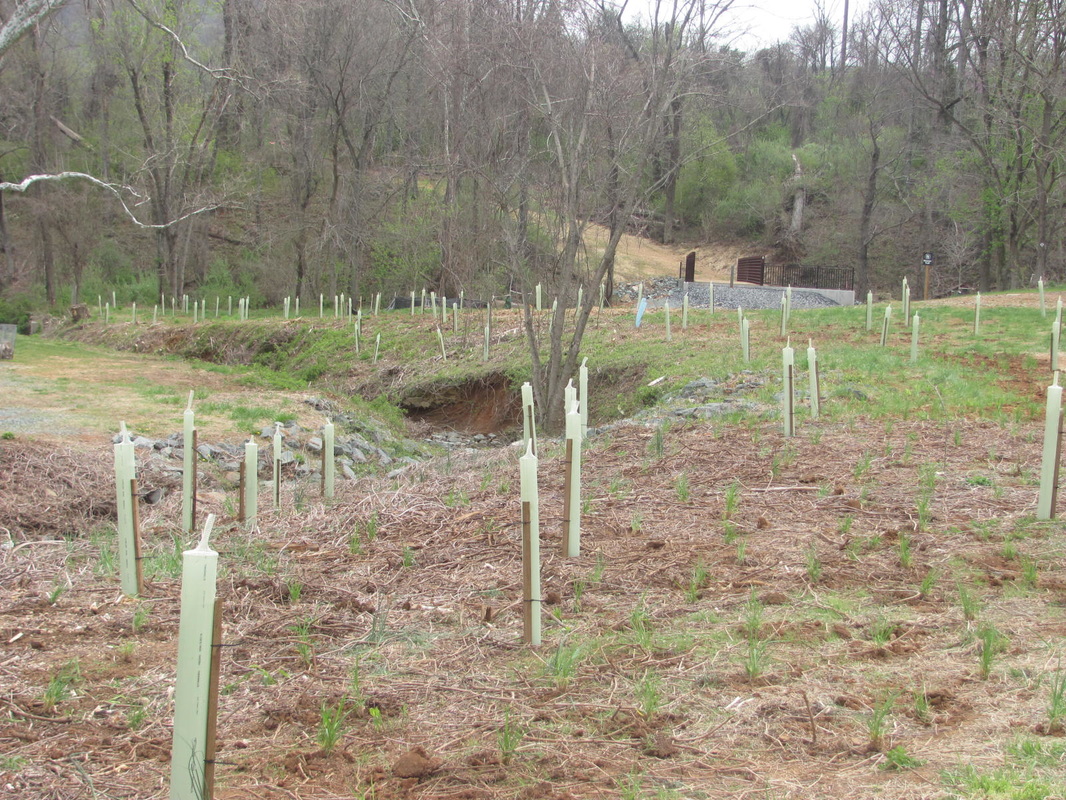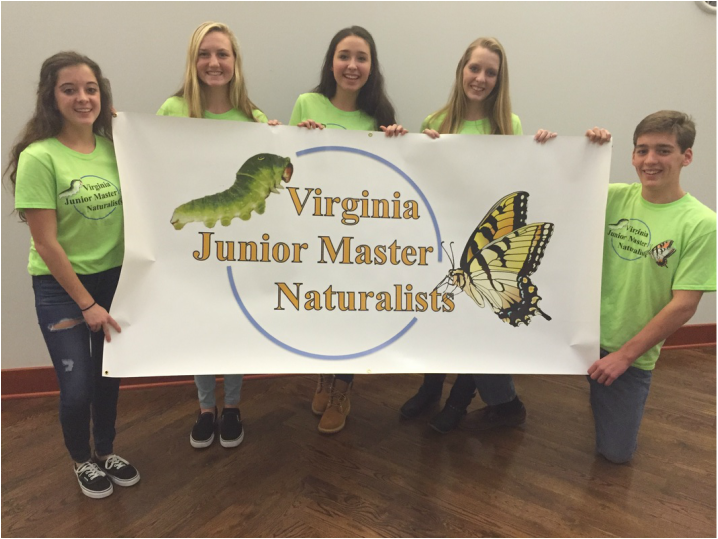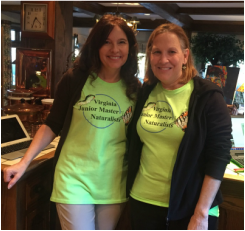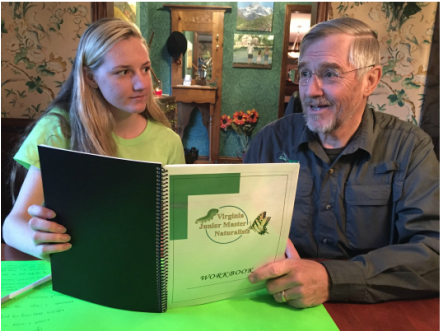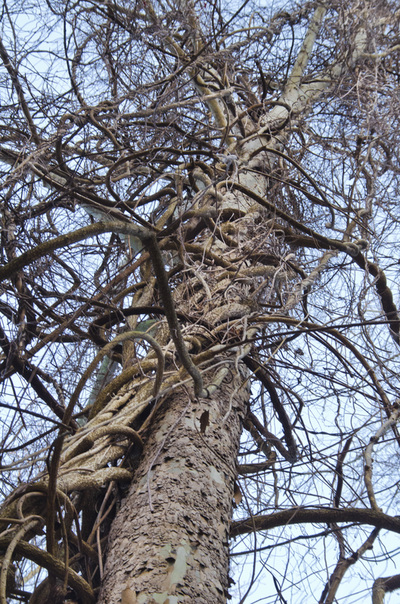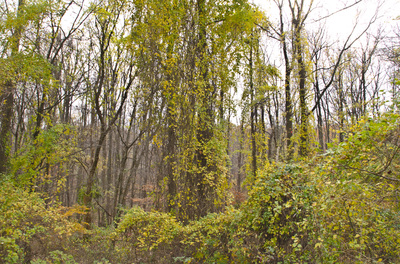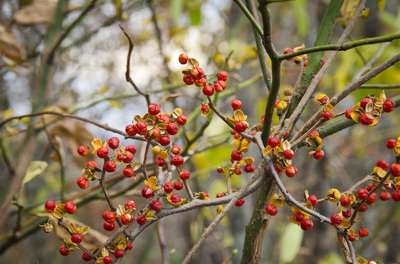Laurels – Winter 2016
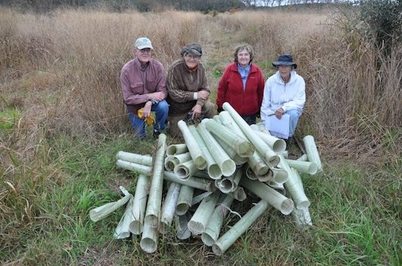 15 Eastern Shore VMN volunteers removed hundreds of plastic tree tubes and recorded survival rates of the tree species, contributing a total of 170 hours on the project. Photo by Eastern Shore Master Naturalist Chapter.
15 Eastern Shore VMN volunteers removed hundreds of plastic tree tubes and recorded survival rates of the tree species, contributing a total of 170 hours on the project. Photo by Eastern Shore Master Naturalist Chapter.
The VMN Eastern Shore Chapter was recognized in “Wildlife Chatter”, the newsletter of the Eastern Shore of Virginia National Wildlife Refuge (ESVNWR) for their longstanding partnership and many volunteer efforts on the refuge. Quoted from the newsletter: “The Eastern Shore Chapter of Virginia Master Naturalists have been one of our strongest partners over the years. They volunteer in our Visitor Center, they lead guided tours on Fisherman Island, and they help us with environmental education and public outreach. This past April and again in October, they once again stepped up to help us complete a project, this time removing hundreds of plastic tree tubes and recording the different species and survival rates along the way. This project will help us increase the sources of high quality forage for migratory birds as they stop to rest and refuel on their long journey.”
–Submitted by Frank Renshaw, VMN – Eastern Shore Chapter, with excerpts from “Wildlife Chatter” by the ESVNWR
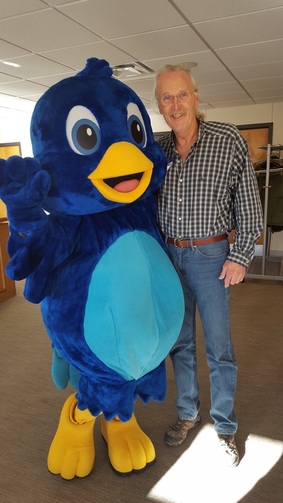 Clark Walter and the Virginia Bluebird Society mascot. Photo by Connie Friend.
Clark Walter and the Virginia Bluebird Society mascot. Photo by Connie Friend.
Clark Walter (VMN – Rivanna Chapter) was awarded the 2015 Volunteer of the Year Award by the Virginia Bluebird Society. Clark began building nest boxes in 2012 for his own bluebird trail when Ann Dunn recruited him and for members of his VMN training cohort. Clark started and continues to build nest boxes, pole and baffle predator guards for the cost of materials donating his time as his volunteer service for VMN. Word has spread over the past four years to VMNs statewide with VMNs coming from the farthest corners of the State to pick up bluebird nest boxes. Word has spread beyond VMN and orders now come in from Virginia Bluebird Society members statewide as well as various conservation facilities, academic institutions, neighborhood associations and bird clubs all over the state and even extending across state lines into Maryland, Pennsylvania and West Virginia. This past Fall his annual call to build bluebird nest boxes for the cost of materials resulted in orders for 310 nest boxes and 258 poles/baffle predator guard set ups. Material costs for this Fall’s orders were almost $8k. What started as a very modest effort in 2012 for his own trail and a few of his VMN classmates has now produced over 1,000 nest boxes and turned into a small not-for-profit enterprise managing orders, production, space, materials, etc. He has recorded approximately 250 VMN hours of volunteer time just building nest boxes in 2015. This does not include the countless unreported hours for taking and tracking orders, assembling material lists, ordering and loading in materials, meeting with people when they pick up their orders, answering countless questions, giving presentations to groups, assisting people with installation and on and on. Congratulations, Clark, and thank you for your service!
–-Submitted by Connie Friend, VMN – Rivanna Chapter
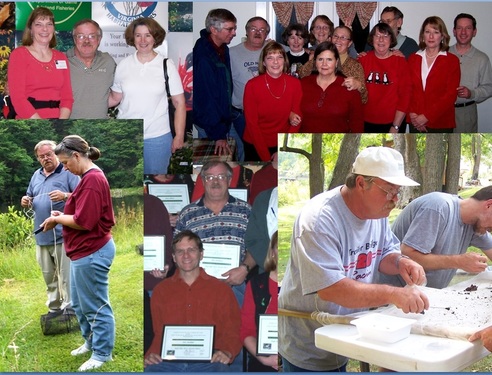 A collage of photos of Will McAllister. Compiled by Brooks Lindamood.
A collage of photos of Will McAllister. Compiled by Brooks Lindamood.
Our hearts and condolences go out to the family and friends of William McAllister who passed away December 7th 2015. Will along with his wife Mary were part of the first and founding members of the Beagle Ridge Virginia Master Naturalist Chapter of Southwest Virginia. Will was instrumental in doing many of the chapter’s early projects, including installing outdoor classrooms and several other education and outreach activities. The chapter is planting a tree in his honor.
–Submitted by Brooks Lindamood, VMN – Beagle Ridge Chapter
Laurels – Winter 2016 Read Post »
